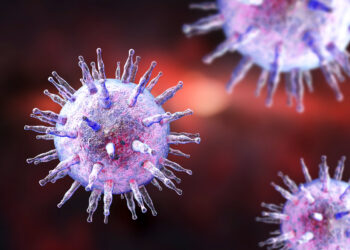BPNA Consensus Statement, The Nordic Guidelines & PANS PANDAS
1st May 2021
It’s been a busy week or two in the world of PANDAS with the publication of the Nordic guidelines (1) together with the release of the “Consensus statement on childhood neuropsychiatric presentations, with a focus on PANDAS/PANS” by the British Paediatric Neurology Association (BPNA) (2). This was preceded by the EMTICS paper by Martino et al (3) whose authors included UK representation from authors who have had additional publications in this field very recently (4). Interestingly, the “Nordic” guidelines had UK input from authors who have also been involved in either the UK PANS PANDAS guidelines (published by the UK PANS PANDAS Physicians Network in 2018) or the EMTICS study (3). The recognition of PANS PANDAS as disease entities that need further research has got to be welcomed and, in this respect, I welcome this recent flurry of publications. I do have a concern that the different publications give a confusing message and we do need to address this. There is a suggestion from some psychiatrists that the recent increase in tic disorders is due to a functional disease process rather than a post-infectious process related to COVID-19. I do not think the evidence for such a position exists, but it is certainly something that should be explored through robust research. Calling the BPNA statement a “consensus” statement I think will also be explored in the very near future. Professor Forsyth presents an interesting discussion of the potential “mind versus cytokine” debate and how we need to avoid negative frameworks on both sides of the debate (5). Forsythe says a key question for Heyman and others to address is “why, specifically, tics?”(5). An obvious question which will need answering with strong independent research.
This is a good time for PANS PANDAS. The disease is firmly in the limelight and accepted. The opportunity to move forward with research to clarify the disease processes and treatments that should be used is now with us.
In 1896 Sir William Osler was at odds with Charcot and Gilles de la Tourette over the mechanisms behind tic disorders. Osler favoured the idea that tics were the manifestation of a physical process whilst Charcot and Tourette promoted the idea of a psychiatric basis for these symptoms. The parallels with the discussions taking place today are uncanny, hopefully we can all widen our lens to see if we can answer the question of whether inflammation of the brain can cause psychiatric phenomenon and more importantly, whether this can be effectively treated.
References
- Pfeiffer H, Wickstrom R, Skov L, Sørensen CB, Sandvig I, Gjone H, et al. Clinical guidance for diagnosis and management of suspected Pediatric Acute-onset Neuropsychiatric Syndrome in the Nordic countries. Acta Paediatr. 2021 Apr.
- British Paediatric Neurology Association. Consensus statement on chidhood neuropsychiatric presentations, with a focus on PANDAS/PANS. Statement from the BPNA [serial on the Internet]. 2021: Available from: Click to download
- Martino D, Schrag A, Anastasiou Z, Apter A, Benaroya-Milstein N, Buttiglione M, et al. Association of Group A Streptococcus Exposure and Exacerbations of Chronic Tic Disorders: A Multinational Prospective Cohort Study. Neurology. 2021 Feb 10.
- Heyman I, Liang H, Hedderly T. COVID-19 related increase in childhood tics and tic-like attacks. Arch Dis Child. 2021 Mar.
- Forsyth RJ. Tics, TikTok and COVID-19. Arch Dis Child. [editorial]. 2021;106:417.
Posted in: Health Politics, PANDAS by Dr Tim Ubhi




Comments
Shani
2021-05-02 14:23:03
It is clear that this open mind from you Dr Tim is better that the narrow minded view that comes from the concensus statement. If my youngest son followed their suggested trajectory of treatment, like my eldest son did, then he too could be lost in the world of ineffective psychiatry because they were trying to fix a car engine with frog poison instead of using a mechanic who used engine oil. It just never did work ! And he tried every frog poison available! Thankfully my youngest son got the treatment, that the BPNA are in efforts to stop, and he AVOIDED frog poison and took ABX and all symptoms ceased andy boy returned to good cognitive funtion... Back to normal and functioning like a normal 12 year old should be!! My eldest son is still lost in the chaos of adult psychiatry still eating frog poison and not getting any better. I agree the research needs to give rise to evidence based practice and I so hope that as you say Dr Tim, the focus and attention will make a path for this !! Failing this I fear for many families and their children. I have experienced both treatments with my son's, one worked and one did not ! I know where my experience and case studies lays in my library of evidence and it is not with the BPNA concensus statement
Emily Jackson
2021-05-02 09:14:58
Thank you for such a well thought out balanced response to a statement that has put fear into the whole PANS PANDAS community. It’s getting too late for my daughter, she turned 17 yesterday and we have to fight for the antibiotics that make her well. This is after a 10 year battle with misdiagnosed PANS (finally diagnosed 2 yrs ago). Sadly we do not have to fight for the psychotropics & neuroleptics that have been happily doled out like sweeties for all these years. Self harm and suicide attempts are just part of the horrific side effects that these drugs have given and to make a consensus that they help is far too sweeping, in a few cases yes but for such a large majority we are not in general agreement that filling our children with mind altering medication is safe or actually helps. I am heartened by your optimistic thoughts towards PP though and it gives me faith that other children won’t have to have the battle that my daughter has had to fight.
PP Mother
2021-05-01 23:04:01
Thank you Dr Ubhi. I admire your classy statement. No mention in the Consensus Statement of the >70,000 officially recorded cases during the Scarlet Fever outbreak (let alone those not recorded) and the projected number of complications from Rheumatic Fever. No reference to PHE's 2017 guidelines denying outbreak testing or the NHS guidelines to return to school 24 hours after starting too short a course of abx even though they might not have kicked in; or the CDC's position that once a child develops Rheumatic Fever every every subsequent strep exposure is an issue and people may need antibiotic prophylaxis over a period of many years (often until 21 years old) to prevent secondary illness. No mention that statistically the average UK class size will have four strep carriers at one time. Are the referrals in actual fact greater than the projection? Some data would be great given that is their main beef.
Shona Morrison
2021-05-01 21:22:07
What’s the plan when psychiatric intervention doesn’t work? The consensus statement doesn’t say. Yet we are told research shows if left unchecked it can lead to longterm issues. It is no different to how a child would be treated before the statement. As for research, the research has already been done in the US hasn’t it by Swedo, Cunningham, Frankovich? Why are the UK trying to reinvent the wheel but starting with a square one?
PANS PANDAS parent
2021-05-01 19:04:15
Thank you for continuing to highlighting the plight PANS/ PANDAS families face. At first glance the consensus statement left me scared for my children. Then I was confused by some of the advice which appeared to contradict itself to their argument. I was also surprised to see no authors & clear guidance on what needs to be done to rule out immune issues.
Pandas parent
2021-05-01 18:31:21
Thank goodness someone is addressing such BS put out by the BPNA. No wonder no one put their individual names to the tripe. It’s an embarrassment. Why were parents living with this condition excluded? Or specialists dealing with the condition not listened to. Other countries have success with pandas/pans yet here they propose the wrong treatment all together via this consensus statement. It needs withdrawing or a lot of children and families will suffer. Whoever put this into circulation does not have the children’s best interest at heart.
Mel Payne
2021-05-01 17:56:05
I think your response is echoed by the whole pans pandas uk community. My daughter has also been diagnosed with TS in January after sudden onset vocal and motor tics with coprolalia. She is already diagnosed with PANDAS but psychiatrist does not accept that diagnosis. After 3 days of antibiotics due to strep throat her tics improved. However psychiatrist has prescribed antipsychotics and clonidine which have not helped at all. Thank you for your articulate response Tim.
S Gasse
2021-05-01 17:48:05
As a parent this is really helpful as it begins to acknowledge the positives alongside clear questions to be further explored . The controversy and debate surrounding treatment is very difficult to bear for parents with long suffering children. Often their own lived experiences of effective and non effective treatments and approaches stands in stark contrast with some of the suggestions by doctors’ organisations. These suggestions are based on an apparent lack of randomised control trials. The lack of compassion expressed alongside the suggestion by neurologist and psychiatrist organisations to favour only the use of (long term) psychotropic medication is incomprehensible. Is there any strong research evidence including the relevant randomised control trials for such treatments specifically in children with PANS/PANDAS? Parents sense that there is more at play than healthy debate around research and evidence, which provides little reassurance that their children’s well-being is the primary focus…
Karen Sturmey
2021-05-01 17:45:24
Thank you for your optimistic response, I am really hoping you’re right and that this is a good time for PANS/PANDAS. As a parent of a child with PANS the report felt like a blow but this has helped.
Aly Shields
2021-05-01 17:30:54
What a well thought out and excellent response. My son was diagnosed with(amongst other things) Tourette's Syndrome. Years later a neuropsychiatrist carried out an extensive assessment on him and deemed that his involuntary movements were not Tourette's Syndrome and caused by something else. Now an adult his symptoms, including severe OCD have been dramatically reduced by antibiotics and a tonsilectomy. He has been on antipsychotic and SSRI medication since he was 13 which have not reduced his symptoms at all. Thank you so much for what I would call a reasoned and intelligent article. Kind wishes